 Iran National Heritage List
Iran National Heritage List
The list of Iran's national monuments is a collection of Iran's historical monuments that have been officially registered due to the National Monuments Preservation Law passed in 1309 by the National Council. According to this law, "all industrial works and buildings and places that were built until the end of the Zandiyeh dynasty in the country of Iran, both movable and immovable, can be considered part of Iran's national monuments in compliance with Article 3 of this law and are under the protection and supervision of the government. " After 25 years, on the 11th of Bahman 1334, with the registration of Golestan Palace, the ban on the registration of works related to Qajar and after that was practically lifted. An official list of these works has been published under the name "List of National Works of Iran".
 Persepolis
Persepolis
 Gonbad Kavous Tower (Qaboos)-Mil Gonbad
Gonbad Kavous Tower (Qaboos)-Mil Gonbad
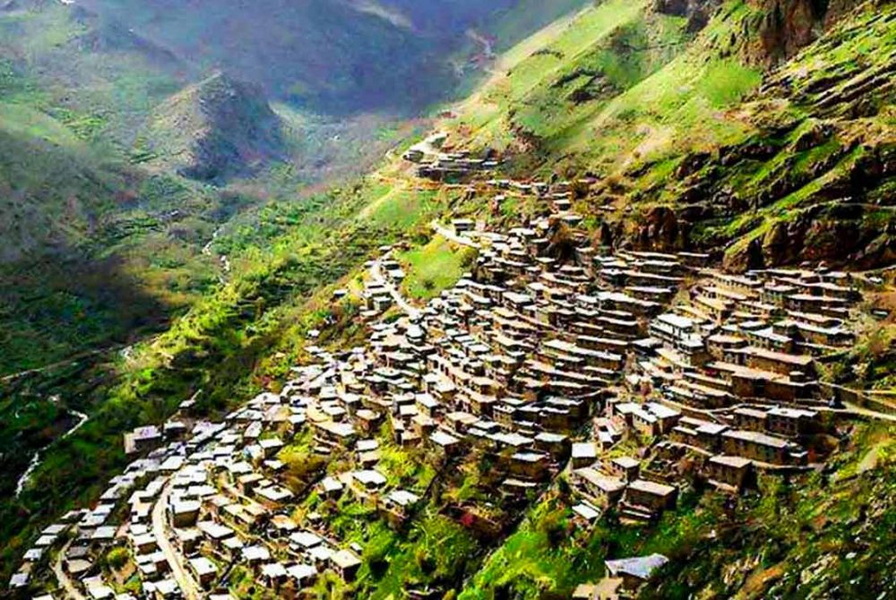 Cultural Landscape of Uramanat
Cultural Landscape of Uramanat
 Bazaar of Tabriz
Bazaar of Tabriz
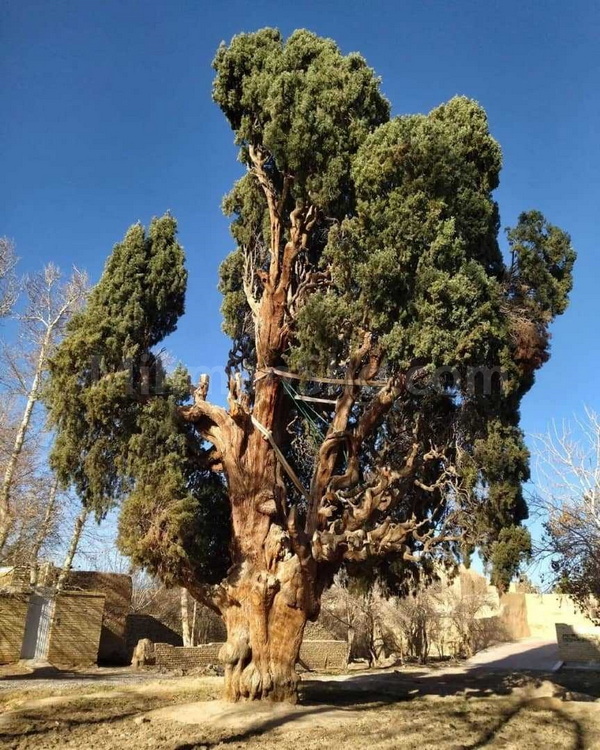 Mehriz Old Cedar
Mehriz Old Cedar
 Apadana
Apadana
 100 Places to See in Iran Before You Die
100 Places to See in Iran Before You Die
100 must-see places in Iran before death, an old list that has been circulating on the internet for years.
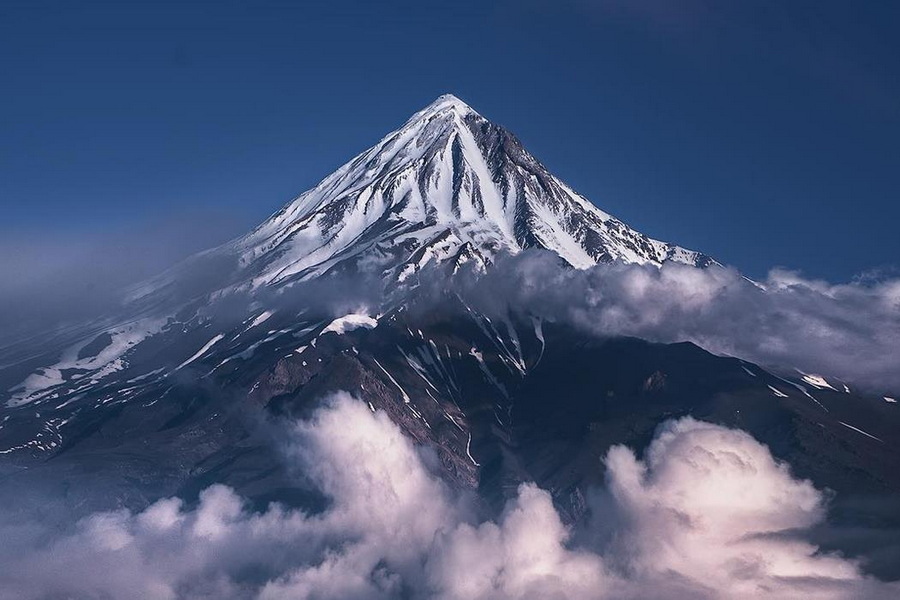 Damavand Peak
Damavand Peak
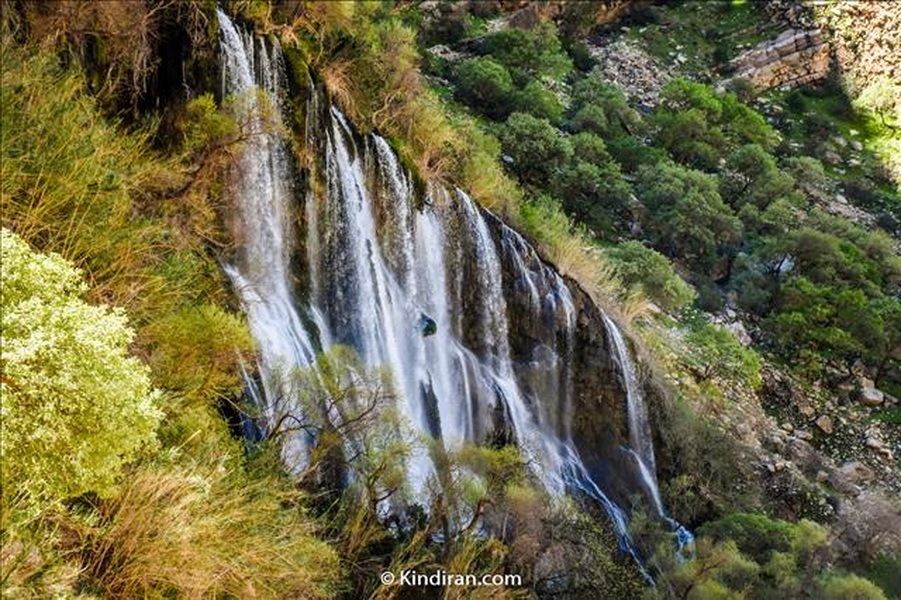 Shevi Waterfall
Shevi Waterfall
 Persepolis
Persepolis
 Apadana
Apadana
 Abyaneh
Abyaneh
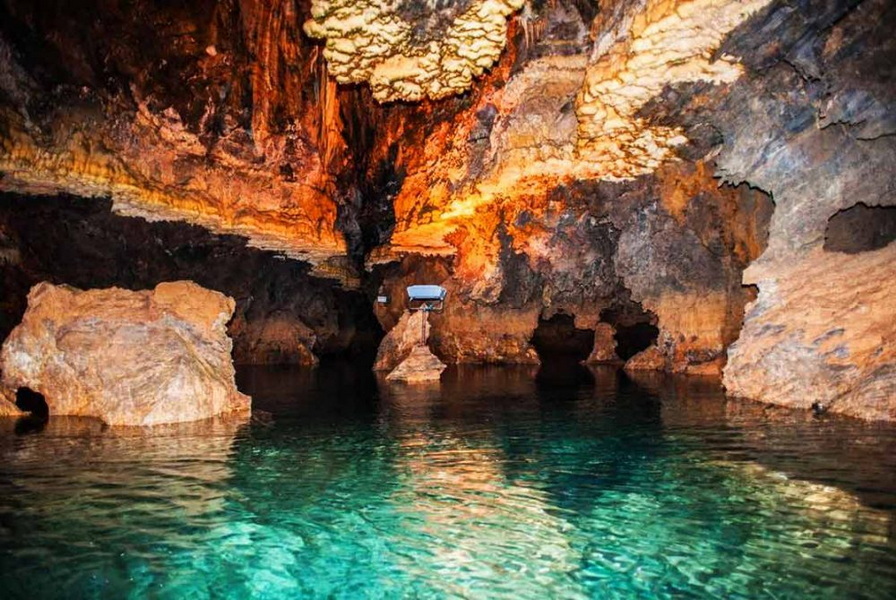 Ali-Sadr Cave
Ali-Sadr Cave
 Natural heritage
Natural heritage
The national natural heritage of Iran is identified, introduced and registered by the Cultural Heritage Organization of Iran and includes natural geographic areas and special regions of the country that, due to their special physical and biological quality, unique geographical landscapes, natural-historical sites, phenomena and valuable plant samples, Animals and their habitats are determined and put under sustainable protection and exploitation.
 Damavand Peak
Damavand Peak
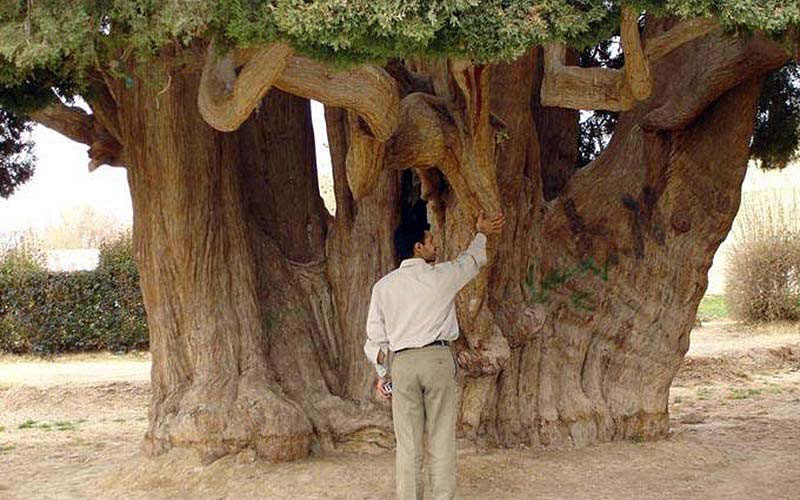 Cedar Abarkooh (Zoroastrian Cypress)
Cedar Abarkooh (Zoroastrian Cypress)
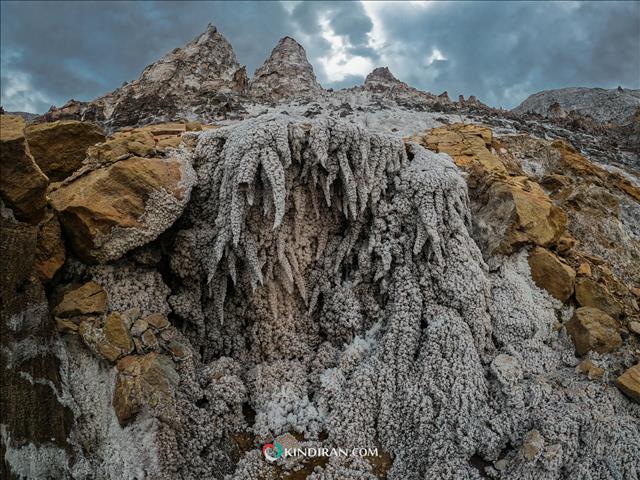 Salt Mountain Jashak ( Dashti Salt Dome )
Salt Mountain Jashak ( Dashti Salt Dome )
 Shevi Waterfall
Shevi Waterfall
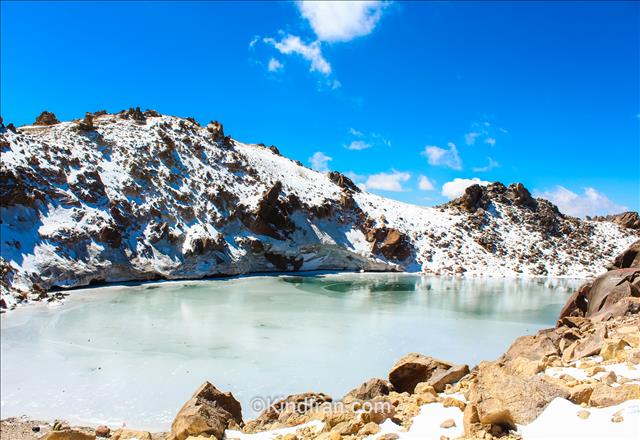 Sabalan
Sabalan
 Mehriz Old Cedar
Mehriz Old Cedar
 Natural Monument
Natural Monument
Iran's National Natural Monument (in English: Natural Monument) according to the regulations of Iran's Environmental Organization, are typical phenomena or rare plant and animal collections (environmental) or rare, special and irreplaceable landforms and landscapes that have scientific, historical or natural If they are of conservation value, the national natural effect will be protected by defining their boundaries.
 Damavand Peak
Damavand Peak
 Cedar Abarkooh (Zoroastrian Cypress)
Cedar Abarkooh (Zoroastrian Cypress)
 Sabalan
Sabalan
 Shevi Waterfall
Shevi Waterfall
 Salt Mountain Jashak ( Dashti Salt Dome )
Salt Mountain Jashak ( Dashti Salt Dome )
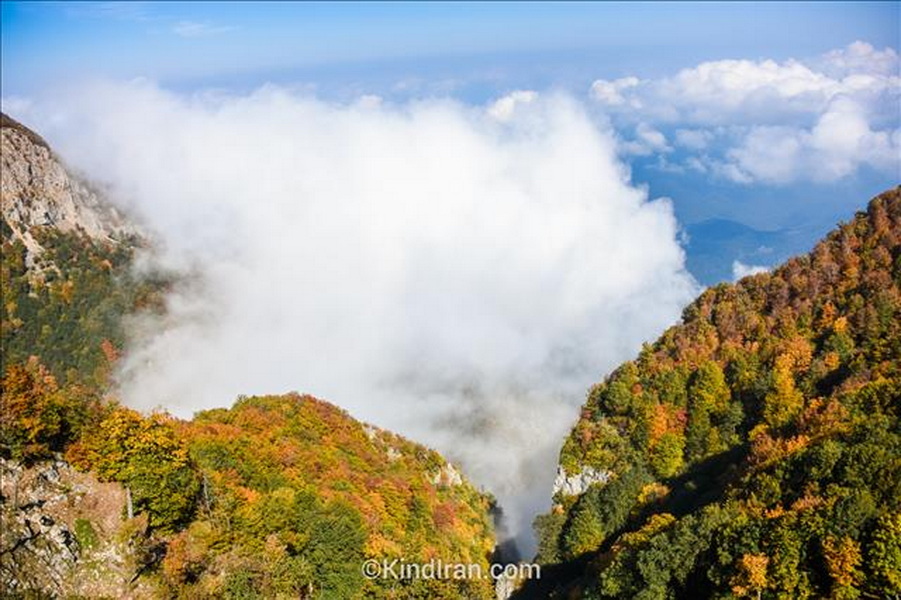 Dorfak
Dorfak
 List of World Heritage Sites in Iran
List of World Heritage Sites in Iran
The world heritage in Iran includes 26 historical-cultural and natural places that have been registered in the world heritage. This list includes 24 items of cultural heritage and 2 works of natural heritage. World Heritage is the name of an international treaty that was approved by the General Conference of UNESCO on November 16, 1972. Its subject is the preservation of historical, natural and cultural works of humanity, which are of global importance and belong to all people on earth, regardless of race, religion and nationality.
 Persepolis
Persepolis
 Gonbad Kavous Tower (Qaboos)-Mil Gonbad
Gonbad Kavous Tower (Qaboos)-Mil Gonbad
 Bazaar of Tabriz
Bazaar of Tabriz
 Cultural Landscape of Uramanat
Cultural Landscape of Uramanat
 Shah Square - Imam Khomeini - Naghsh-e Jahan
Shah Square - Imam Khomeini - Naghsh-e Jahan
 Monastery of Saint Thaddeus
Monastery of Saint Thaddeus
 World Heritage Tentative List
World Heritage Tentative List
This list includes works in Iran that are placed in this list with the intention of global registration. Iran has temporarily proposed 61 works for global registration.
 Damavand Peak
Damavand Peak
 Cedar Abarkooh (Zoroastrian Cypress)
Cedar Abarkooh (Zoroastrian Cypress)
 Sabalan
Sabalan
 Salt Mountain Jashak ( Dashti Salt Dome )
Salt Mountain Jashak ( Dashti Salt Dome )
 Imam Reza Holy Shrine Complex
Imam Reza Holy Shrine Complex
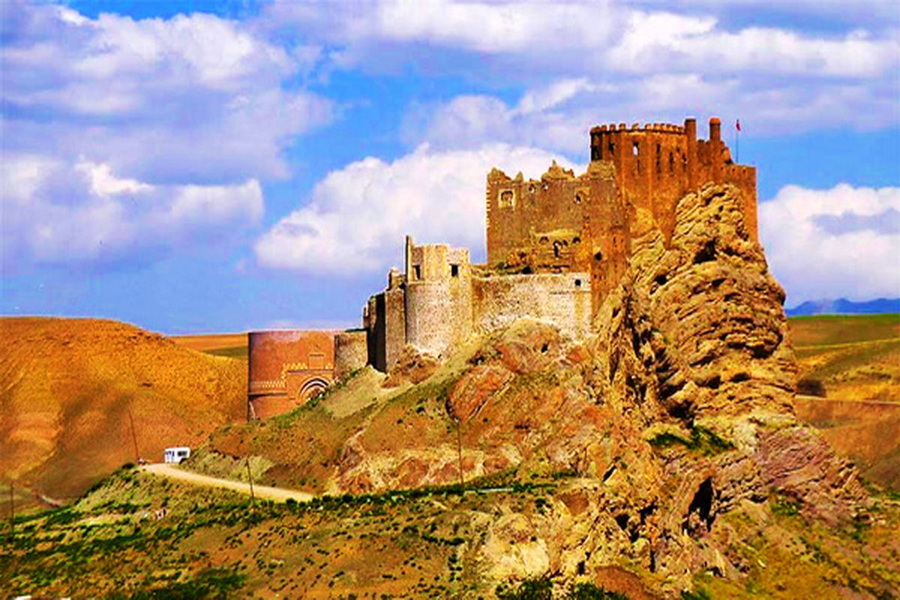 Alamut Castle
Alamut Castle
 Iran Mountains
Iran Mountains
List of the highest and most famous peaks in Iran
 Damavand Peak
Damavand Peak
 Sabalan
Sabalan
 Dorfak
Dorfak
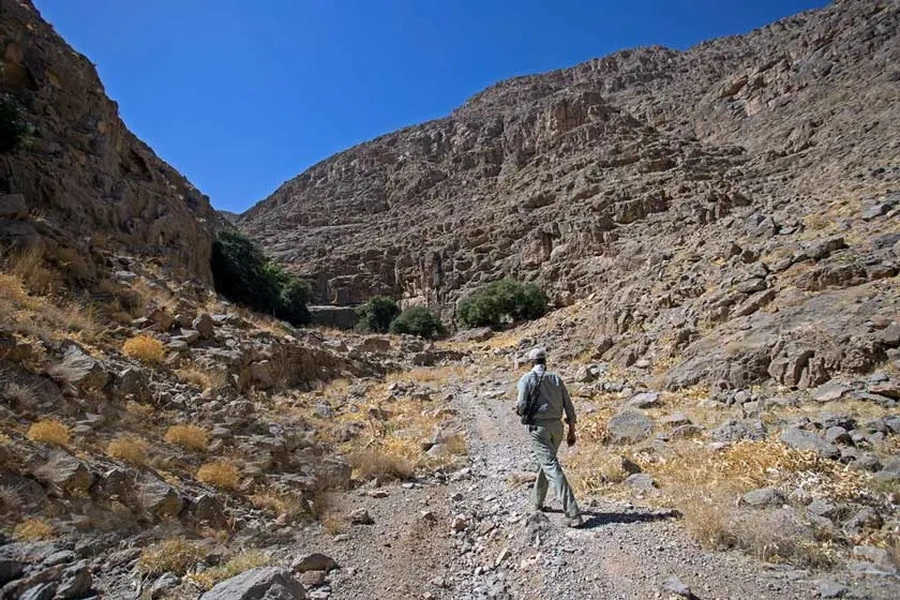 Haftad Qolleh Protected Area
Haftad Qolleh Protected Area
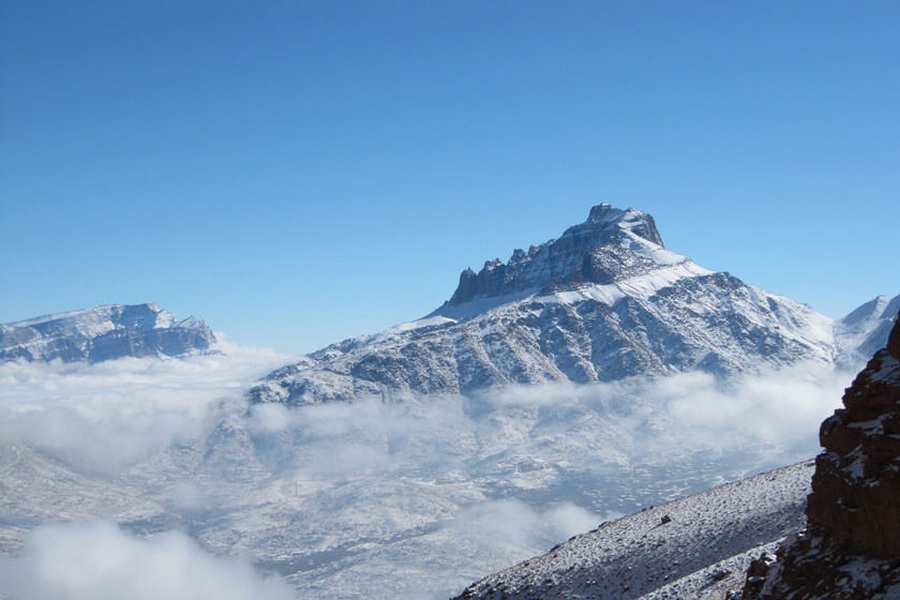 Shir Kuh
Shir Kuh
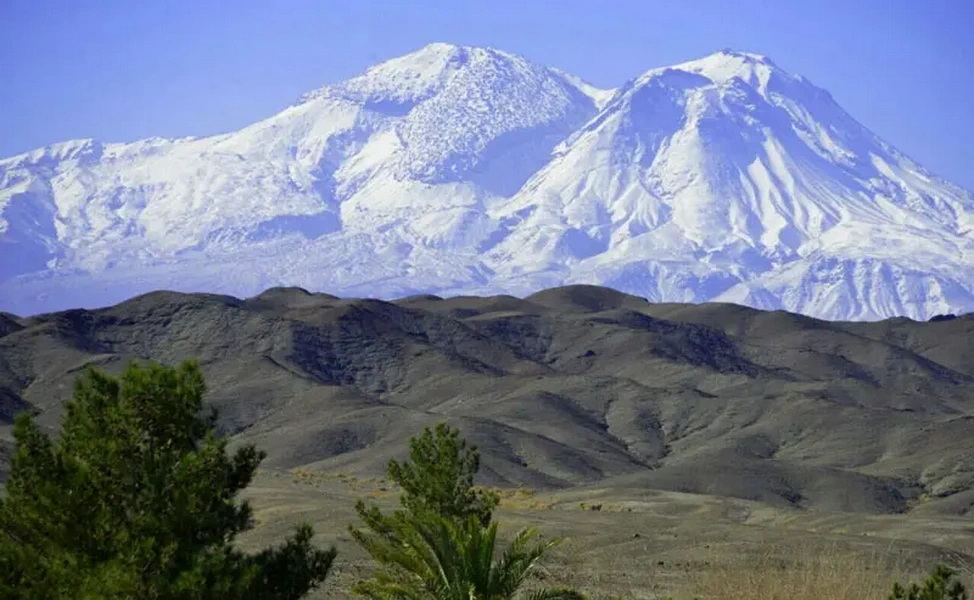 Taftan Peak
Taftan Peak
 Iran Trees
Iran Trees
List of old trees of Iran
 Cedar Abarkooh (Zoroastrian Cypress)
Cedar Abarkooh (Zoroastrian Cypress)
 Mehriz Old Cedar
Mehriz Old Cedar
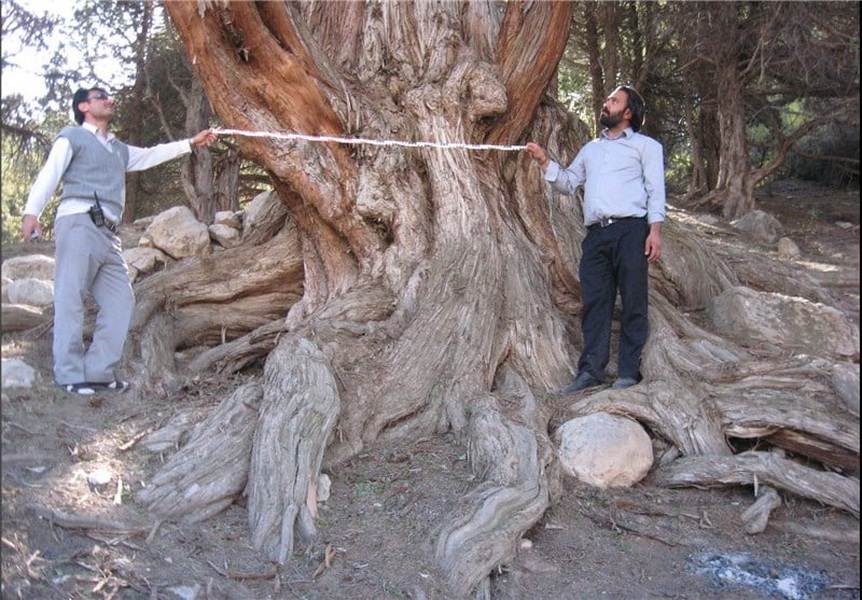 Aras Sarani
Aras Sarani
 Bird watching site
Bird watching site
It is a type of entertainment that is related to seeing and examining birds in nature. Bird watching is a part of ecotourism activity. In Iran, 25th of Aban is dedicated to this day. The most active seasons of the year for bird watching in the tropical region are during the spring and fall migration of birds. In these seasons, you can see the most species of birds because those birds that do not build nests in a special area migrate from north to south in these seasons and are seen among the group of migratory birds. The number of bird watchers in the world is continuously increasing, to the extent that there are more bird watchers in England and Germany than football fans. In Iran, the number of bird lovers and birdwatchers is increasing day by day. It is an international treaty for the protection of wetlands and animals and plants related to them (especially water birds), which was approved in Ramsar city in 1349. At first, this treaty was signed by the representatives of 18 participating countries. Currently, this agreement covers 2412 places with an area of more than 254 thousand hectares in 171 countries.
 Zarivar Lake
Zarivar Lake
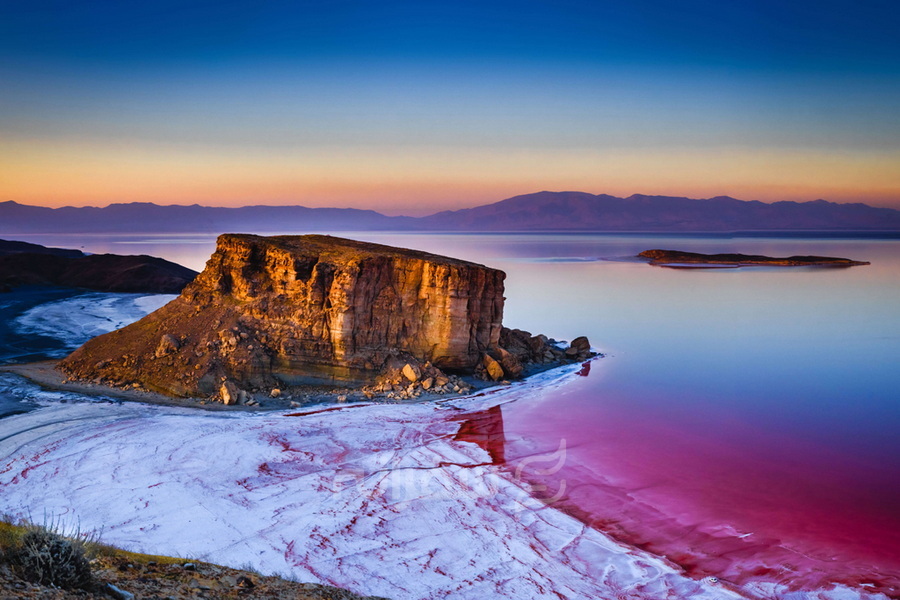 Lake Urmia
Lake Urmia
 Almagol Lagoon, Almagle and Tear-eGol
Almagol Lagoon, Almagle and Tear-eGol
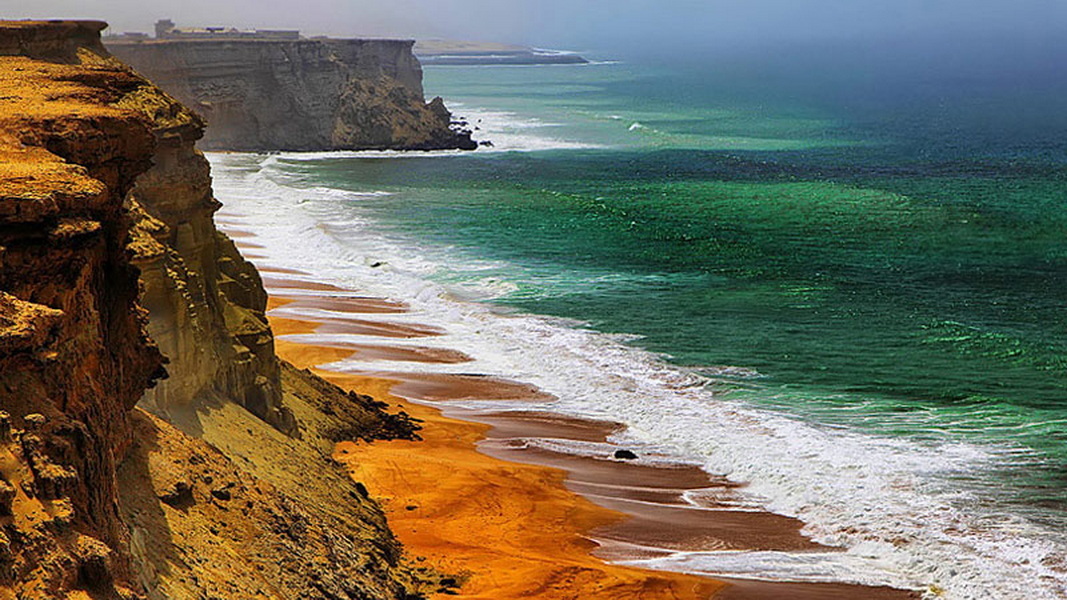 Gwadar Bay
Gwadar Bay
 Gourgul Lagoon
Gourgul Lagoon
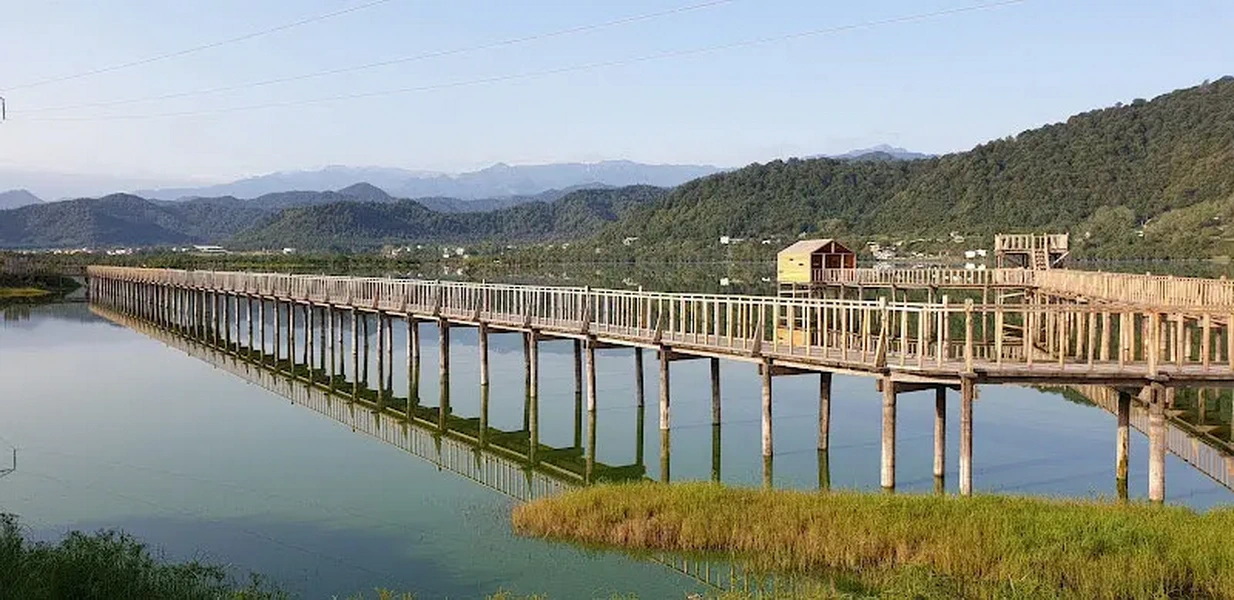 Hashilan Wetland
Hashilan Wetland
 Ramsar Convention
Ramsar Convention
It is an international treaty for the protection of wetlands and animals and plants related to them (especially water birds), which was approved in Ramsar city in 1349. At first, this treaty was signed by the representatives of 18 participating countries. Currently, this agreement covers 2412 places with an area of more than 254 thousand hectares in 171 countries.
 Zarivar Lake
Zarivar Lake
 Lake Urmia
Lake Urmia
 Almagol Lagoon, Almagle and Tear-eGol
Almagol Lagoon, Almagle and Tear-eGol
 Gwadar Bay
Gwadar Bay
 Gourgul Lagoon
Gourgul Lagoon
 Hashilan Wetland
Hashilan Wetland
 Areas under environmental protection
Areas under environmental protection
The four regions of Iran Environmental Protection Organization are: National parks, natural landscapes of national and global importance (26 national parks) National natural effect, unique phenomena or plant and animal collections (35 national natural effects) Wildlife sanctuary of exemplary habitats of wild animals (42 shelters) Protected area of special environmental lands (150 protected areas)
 Damavand Peak
Damavand Peak
 Cedar Abarkooh (Zoroastrian Cypress)
Cedar Abarkooh (Zoroastrian Cypress)
 Salt Mountain Jashak ( Dashti Salt Dome )
Salt Mountain Jashak ( Dashti Salt Dome )
 Shevi Waterfall
Shevi Waterfall
 Sabalan
Sabalan
 Dorfak
Dorfak
 Iran Celebrities
Iran Celebrities
 Aboureihan Biruni
Aboureihan Biruni
 Qutbuddin Shirazi
Qutbuddin Shirazi
 Abu Nasr Farabi
Abu Nasr Farabi
 Nima Youshij
Nima Youshij
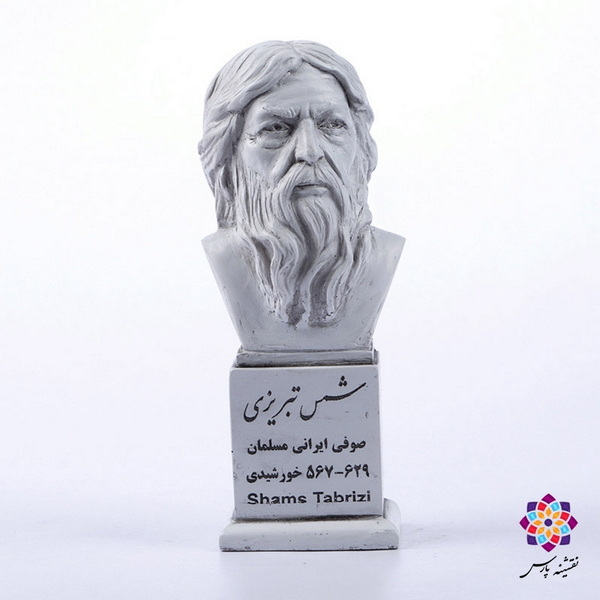
 Ibn e Sina
Ibn e Sina